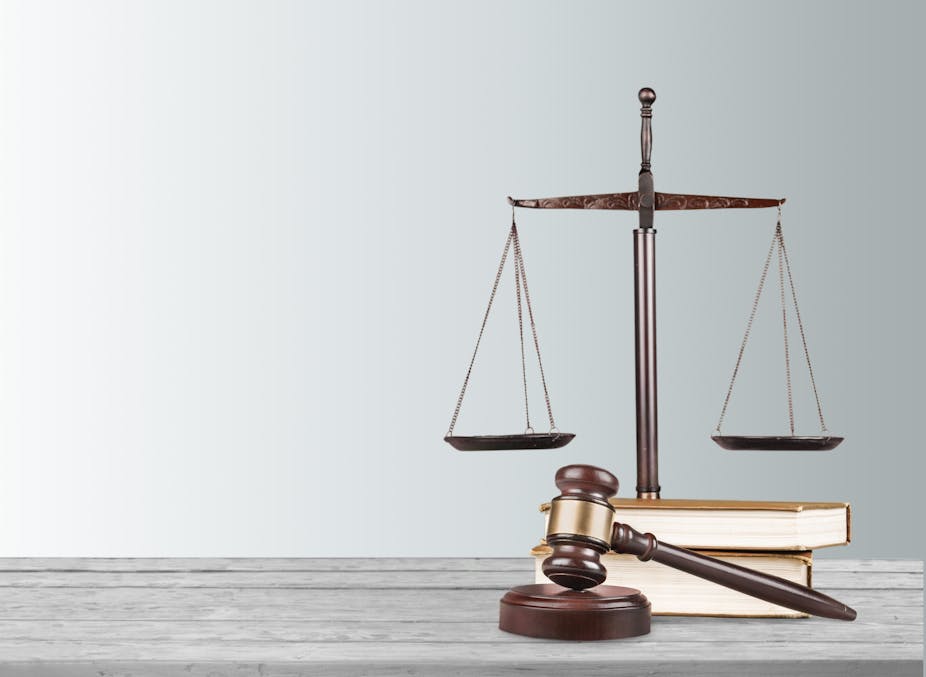Access to justice for all citizens is a cornerstone of democracy and an increasingly prominent goal on the global agenda. It’s highlighted in the United Nations’ Sustainable Development Goal 16 to “promote just, peaceful and inclusive societies.”
One way to assess progress is through the perceptions and experiences of ordinary citizens of the legal systems in their countries.
A new analysis based on Afrobarometer’s most recent round of surveys in 36 African countries paints a sobering picture: while some countries can boast significant success in providing access to justice, most still face substantial blockages that are both patently unfair and a breeding ground for discontent. (For a detailed analysis by country, see Afrobarometer Policy Paper No. 39.)
On the positive side, most Africans (72%) see courts as legitimate, charged with making decisions that all citizens must abide by. But only a slim majority (53%) trust the courts even “somewhat,” and one in three (33%) believe that “most” or “all” judges and magistrates are corrupt.
Citizens report a number of serious barriers to access to justice, including long delays in court cases, high costs, corruption, the complexity of legal processes, lack of legal counsel, and concerns about court fairness.
What’s worse, access is most severely restricted for some of Africa’s most vulnerable citizens – the uneducated, rural residents, and especially people living in poverty.
Higher hurdles for the poor
Whether based on experience or word of mouth, poor people (those who most frequently go without enough food, clean water, medical care, cooking fuel, and a cash income) have less faith in the integrity of the courts than their wealthier counterparts.
More than four in 10 (42%) of the poorest respondents say that “most” or “all” judges and magistrates are corrupt, compared to 26% of the wealthiest respondents. The gap is 11 percentage points with respect to trust in the courts (Figure 1).

When they do engage with the legal system, poorer Africans are much more likely to experience problems (Figure 2). Compared to those with no lived poverty, the poorest are more than twice as likely to find courts too expensive (52% vs. 24%), 16 percentage points more likely to report that judges don’t listen to them, 15 points more likely to find the courts too complex and to suffer from lack of legal counsel, and 10 points more likely to face long delays.

Why poor people don’t go to court
Only about one in eight Africans (13%) say they had contact with the courts during the past five years. Survey respondents cite a number of reasons that might prevent citizens from taking cases to court, even if they have legitimate complaints.
Here, too, the poor differ from the rich. Court costs are an important deterrent for both groups, but costs for lawyers are a much more significant impediment in the minds of wealthier respondents than among the poorest (cited by 22% vs. 14%). The wealthy identify long wait times as the next-most-important barrier, citing delays twice as frequently as the poor (16% vs 8%).
Poorer respondents are more likely to cite lack of trust in the courts, along with the expectation that they won’t be treated fairly, that the courts will favour the rich and powerful, and that court officials will demand bribes. In short, poor people are significantly less likely to mention time or money concerns and more likely to mention the expectation of inequitable or improper treatment by the courts. Poorer respondents are also much more likely (13% vs. 5%) to prefer informal justice mechanisms such as traditional leaders or local councils.
Access to justice for all
Other marginalised groups, too, face particular challenges in access to justice, including the less-educated (Figure 4) and rural residents.

But barriers to justice are reported by all groups in all countries, even in relatively high-performing Botswana, Cape Verde, and Lesotho, not to mention dismally low-performing Liberia and Sierra Leone.
In general, less-democratic countries and those affected by conflict struggle the most to ensure access to justice. Across 36 countries, fewer than half (45%) of citizens who had contact with the courts say that obtaining the needed assistance was easy, and 30% report paying bribes to court officials.
Understanding the perspectives and experiences of ordinary citizens can help us identify and ultimately overcome barriers to justice. Evidence that the hurdles are highest for some of the most vulnerable groups – those who may have the greatest needs and least resources to obtain remedies – gives efforts to ensure their access to justice a special urgency.

